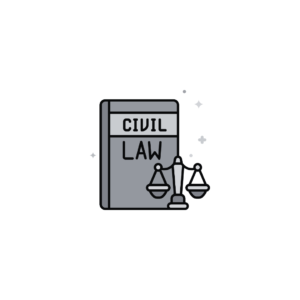Description
Curriculum for LLM in Human Rights Law
An LLM in Human Rights Law typically encompasses a wide range of topics that provide an in-depth understanding of human rights principles, international law, and advocacy. While specific curriculums may vary by institution, the following core subjects are often included:
Introduction to Human Rights Law
Overview of the historical development of human rights law and key international human rights instruments.
Examination of major human rights treaties, such as the International Covenant on Civil and Political Rights (ICCPR) and the International Covenant on Economic, Social and Cultural Rights (ICESCR).
International Human Rights Law
Detailed study of the legal frameworks governing human rights at the international level.
Analysis of the roles of international bodies, such as the United Nations Human Rights Council and International Criminal Court.
Regional Human Rights Systems
Exploration of human rights protection mechanisms in specific regions, such as the European Convention on Human Rights, the African Charter on Human and Peoples’ Rights, and the Inter-American Human Rights System.
Examination of enforcement mechanisms and challenges facing regional systems.
Human Rights and Humanitarian Law
Examination of the relationship between human rights law and international humanitarian law, especially in armed conflicts.
Study of issues related to refugees, asylum, and displacement.
Civil and Political Rights
In-depth analysis of rights such as the right to life, freedom of expression, and the right to a fair trial.
Discussion of case law and jurisprudence related to civil and political rights.
Economic, Social, and Cultural Rights
Exploration of rights relating to health, education, housing, and an adequate standard of living.
Analysis of the obligations of states to fulfill these rights and the challenges in ensuring compliance.
Human Rights Advocacy and Litigation
Study of strategies for advocating for human rights at national and international levels.
Training in legal advocacy, including drafting legal documents and engaging in litigation for human rights cases.
Gender and Sexuality Rights
Examination of human rights issues related to gender equality, sexual orientation, and gender identity.
Analysis of laws and policies impacting marginalized groups.
Collective Rights and Minority Rights
Exploration of rights related to indigenous peoples, ethnic minorities, and marginalized communities.
Examination of how collective rights promote social justice and equality.
Human Rights in the Digital Age
Discussion of the impact of technology on human rights, including privacy rights, freedom of expression online, and the implications of artificial intelligence.
Review of digital justice issues in the global context.
Research Methodologies in Human Rights Law
Development of critical research skills applicable to the field of human rights, including qualitative and quantitative methods.
Preparation for writing a thesis or dissertation on a human rights topic.
Contemporary Issues in Human Rights
Examination of current challenges in the field of human rights, such as climate justice, global health, and responses to authoritarian regimes.
Career Opportunities After Completing an LLM in Human Rights Law
Graduates with an LLM in Human Rights Law can pursue diverse and impactful career paths, including:
Human Rights Lawyer
Practicing law in areas that focus on individual and group rights, providing legal representation to victims of human rights violations.
Legal Advisor for NGOs
Working with non-governmental organizations focused on human rights advocacy, policy formulation, and litigation support.
International Human Rights Advocate
Engaging in advocacy work at international bodies such as the United Nations or regional human rights organizations.
Policy Analyst
Analyzing and developing policies related to human rights issues for governmental organizations or think tanks.
Academic Researcher or Lecturer
Teaching human rights law at universities and engaging in scholarly research on human rights principles and practices.
Human Rights Consultant
Providing expertise to various organizations on human rights compliance, assessments, and training programs.
Refugee and Asylum Lawyer
Advocating for the rights of refugees and asylum seekers, helping clients navigate immigration processes and secure protection.
Civil Rights Coordinator
Working within governmental agencies or non-profits to ensure compliance with civil rights laws and to advocate for marginalized communities.
International Organization Staff
Working with organizations such as Amnesty International, Human Rights Watch, or the International Red Cross on human rights projects and advocacy initiatives.
Judicial Clerk or Research Assistant
Assisting judges or human rights tribunals with legal research and case management in human rights litigation.
Social Justice Advocate
Working on grassroots movements, advocating for systemic changes related to human rights issues at the community level.
Legal Researcher
Conducting research on human rights issues for legal firms, NGOs, or governmental bodies to inform policy and legal decisions.
Conclusion
An LLM in Human Rights Law provides vital skills and knowledge for engaging in meaningful action to protect and promote human rights. Graduates can work in various fields, including law, advocacy, policy-making, and education, contributing to the global pursuit of justice and equality. If you have specific questions about institutions offering this degree, the application process, or career guidance, please feel free to ask!









